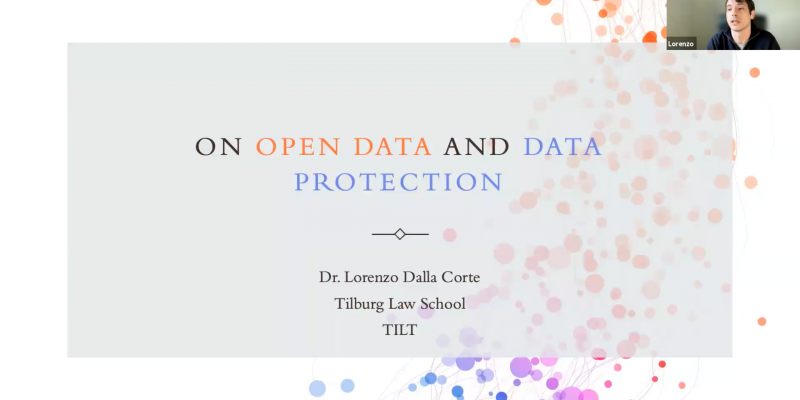On 15 November 2021, the third online site visit for TODO staff and ESRs was held.
Dr. Alexandra Giannopoulou of the Institute for Information Law (IViR), University of Amsterdam gave a presentation about open research data licensing and FAIR principles in their context, especially in light of data-driven activities where licences become more important. It is vital for research data to be available as an enabler of high-quality research. She provided an overview of the different open data licences available, listing their pros and cons related to appropriateness to research data. She concluded with considerations (still) to be taken into account, including new regulations related to data mining.
Dr. Lorenzo Della Corte of Tilburg Law School provided an overview of the balance between open data and data protection. Open data is part of a movement and this movement was implemented in legislation. Personal data protection is born out of the right to privacy, dating back to 1900. The GDPR channels personal data processing. A proportionality test will determine whether a 3rd party has unlimited access to (open) data. From the presentation, it became clear ensuring open data are anonymous is a moving target and that de-anonymizing is not without challenges. Proportionality will determine whether a 3rd party has unlimited access to data. The proportionality test will determine if interfering with a qualified fundamental right is legitimate, and if so, to what extent. However, just because a dataset contains personal data, is not sufficient to prevent access to or reuse of the dataset. A balance has to be found between the rights and freedoms underlying open data with the right to personal data protection. And this may imply that for datasets containing personal data other suitable options have to be found in the “openness spectrum”.

Dr. Alexandra Giannopoulou, post-doctoral researcher at the Institute for Information Law (IViR), University of Amsterdam proving an overview of open research data licencing.
 Dr. Lorenzo Dalla Corte of Tilburg Law School TILT providing an insight into the balance of open data and data protection.
Dr. Lorenzo Dalla Corte of Tilburg Law School TILT providing an insight into the balance of open data and data protection.
